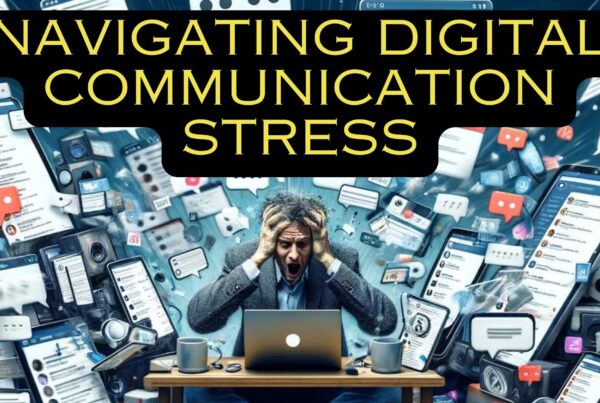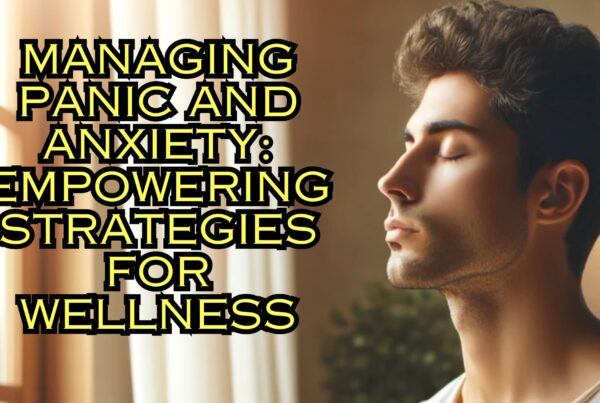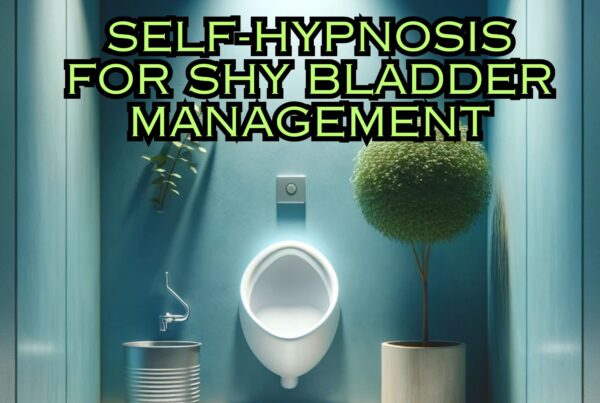Anxiety: Generalised Anxiety, Panic Disorders and Social Phobias: The Many Types of Anxiety
In the last article, we looked at what anxiety actually was and the fact that anxiety is actually something we do to protect us via ‘flight or fight’.
We looked at how anxiety is a response to fear and causes nervousness and worry, which can ultimately affect how we feel and behave. Due to the mind-body connection, when we believe the worst is going to happen, our body reacts as if that is happening and causes us to feel anxious feelings.
This week, we’re going to spend some time looking at the different types of anxieties that exist.
Types of anxiety
There are six basic types of anxiety-related problems.
These include:
- Generalised Anxiety Disorder (GAD)
- Panic Disorder
- Social Phobia and anxiety
- Specific Phobia
- Obsessive-Compulsive Disorder (OCD)
- Post Traumatic Stress Disorder (PTSD)
This week, we’re going to look at Generalised Anxiety Disorder, Panic Disorders and Social Anxiety Disorder or Phobia.
Generalised Anxiety Disorder (GAD)
Most of us have situations in our lives that are worthy of worry or some anxious feelings. Going on a date, taking an exam or doing a presentation are all examples of situations where we might feel a little more anxious and uncomfortable than we would normally. For people who are living with Generalised Anxiety Disorder though, they worry and feel anxious most of the time and they have it in such intensity that it can impact on them being able to do normal day to day things.
In Australia, nearly 6% of the population will experience Generalised Anxiety Disorder.
Their worry and tension becomes chronic and exaggerated even though nothing seems to provoke it. As a result of this, they don’t avoid situations.
You may have GAD if the specific signs or symptoms are present on more days than not over a period of six months or more.
It is as though they’re living in a world where they constantly anticipate disaster to be around every corner and will often worry excessively about multiple factors in their life, such as health, money, family, relationships, and work. Even minor things such as housework or being late for an appointment can cause people with GAD to feel anxious although, even then, trying to pinpoint what the exact source of worry is can be difficult. Even the thought of doing normal day to day things fills them with anxiety.
People with GAD will often find it hard to find proper rest and relax since their minds are constantly active with concern and worry. This inability to find proper rest can often leave them feeling tired, have trouble concentrating and sometimes lead to depression. These can often be combined with physical symptoms such as trembling, twitching, muscle tension, headaches, irritability, sweating, or hot flushes.
Panic Disorder
Many people will have heard of ‘panic attacks’. These are sudden and brief attacks of intense anxiety and fear that leads to shaking, confusion, dizziness, nausea, and difficulty breathing.
Ask anyone who has had a panic attack before and they will tell you that it can often feel like they’re about to pass out and that the ‘fight or flight’ drive kicks in.
Up to 40% of Australians will experience a panic attack at some point in their lives.
Having said that, having a panic attack doesn’t mean that you’re living with a panic disorder. For people who do, the attacks can be frequent and unexpected which can lead to a severe disruption in their lives.
For those that experience a panic attack, the expectation that future attacks can happen is often there, even when they do not know what the original cause is. They may try to avoid situations that they think may trigger an attack again although often they may find that, once the internal thoughts and feelings of a panic attack begin, their expectation of an attack coming on may provoke it further.
Social Anxiety Disorder or Phobia
A Social Anxiety Disorder or Phobia is a type of social phobia where you avoid social situations for fear of being judged or because they make you feel anxious.
Like Generalised Anxiety Disorder, there are going to be moments in everyone’s life where you may feel anxious about meeting new people or a social setting. For people who are living with a Social Anxiety Disorder or Phobia, they’re likely to avoid the social settings entirely due to the amount of fear and anxiety they might feel.
This includes anything from going to work, eating or drinking in public and even making small talk.
Signs of a Social Anxiety Disorder include anxious feelings in social settings, feeling pressure to do the ‘right thing’ in social situations, feeling self-conscious around others, worrying that others will notice your anxiety, mentally replaying how you acted in social settings afterwards and not doing things you want to do because you feel anxious.
Next week, we’ll continue looking at the various forms of anxiety before moving onto first steps in addressing them.
In the meantime, for more information you may wish to check out:
Beyond Blue
ReachOut.com
Black Dog Institute
Anxiety.org
Book Your FREE Half Hour Consultation With Release Hypnosis NOW!
You may also like to read:
When Fear Takes Over – A Look At Phobias
Release Hypnosis’s Lawrence Akers on JOY FM
Tips To Deal With Anxiety
Explainer: What Is Social Anxiety Disorder?








